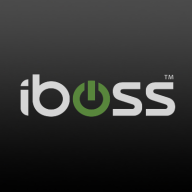


Cisco Umbrella and CASB are both prominent in enhancing corporate network security. Cisco Umbrella has an edge due to its pricing and customer support, while CASB is favored for its advanced features.
Features: Cisco Umbrella includes DNS-layer security, an intelligent proxy, and broad threat intelligence to guard against malware and phishing. CASB provides granular activity monitoring, comprehensive data loss prevention, and real-time control, focusing on data security across cloud services.
Ease of Deployment and Customer Service: Cisco Umbrella offers quick and straightforward deployment coupled with effective customer support. CASB, though more complex to deploy due to its extensive features, provides significant support to aid in managing integrations, accommodating tailored security needs with a thorough implementation.
Pricing and ROI: Cisco Umbrella is budget-friendly, with competitive setup costs enhancing ROI by minimizing security breaches. CASB's higher initial costs stem from its comprehensive features but ensure substantial long-term ROI by enhancing cloud security, suitable for organizations with intricate data protection needs.
| Product | Market Share (%) |
|---|---|
| Cisco Umbrella | 11.2% |
| iboss | 2.5% |
| CASB | 0.9% |
| Other | 85.4% |

| Company Size | Count |
|---|---|
| Small Business | 6 |
| Midsize Enterprise | 6 |
| Large Enterprise | 5 |
| Company Size | Count |
|---|---|
| Small Business | 49 |
| Midsize Enterprise | 30 |
| Large Enterprise | 51 |
Iboss offers a comprehensive cloud-based security platform valued for its scalability and autonomous features, ensuring robust security with easy deployment and management capabilities.
Renowned for its robust security architecture, Iboss integrates seamlessly within diverse networks, delivering efficient granular filtering and advanced content categorization. Its single pane of glass console provides ease of management, allowing rapid scalability suitable for rapidly deploying environments. Operates in BYOD setups due to inline filtering without device installation. Integration with cloud-based applications enhances user control, and features like SASE, SSL inspection, and ChatGPT risk protection stand as highlights. Despite its strengths, users have pointed out areas for enhancement like direct navigation in reports, SSL decryption, and better cloud integration while having room to improve data loss prevention.
What are the most important features of Iboss?The usage of Iboss spans educational institutions, specifically K-12, to enforce internet policies, protect data, and support remote work environments. It provides web filtering and security frameworks to ensure safe browsing. Its platform-as-a-service model offers flexibility for both cloud-based and on-premises requirements, integrating seamlessly to deliver enhanced security features suitable for various deployment needs including zero trust, CASB, and network security for work-from-home setups.
CASB is a robust security tool that safeguards cloud-based applications by offering comprehensive control and visibility. It connects cloud providers and consumers, fulfilling diverse security requirements.
Cloud Access Security Broker (CASB) integrates with cloud services and enterprise security infrastructures to provide a centralized platform for risk management. It addresses security gaps in cloud adoption by enforcing data protection policies and enhancing compliance. CASB ensures organizations can detect and mitigate cyber threats efficiently while maintaining data integrity and availability. The system's flexibility and adaptability make it essential for businesses navigating complex cloud environments.
What are the key features of CASB?In healthcare, CASB ensures patient data confidentiality by enforcing strict access controls and monitoring potential breaches. Within finance, it prevents unauthorized data sharing and assists in meeting compliance mandates. Education sectors use CASB to manage and secure collaborative tools without hindering accessibility, reflecting its versatility across different industries.
Cisco Umbrella provides fast-deploying DNS-layer security with powerful threat protection capabilities. Trusted by over 30,000 entities, it ranks highly in DNS security and effectively supports secure remote work environments.
Cisco Umbrella offers comprehensive DNS security, web filtering, and ease of use, enhancing network security through robust threat protection and malware prevention. It processes over 600 billion requests daily, making it a leader in its field. The seamless integration with existing infrastructures and cloud-based nature makes it suitable for remote and distributed work environments, ensuring consistent security throughout. Management is streamlined with a single-pane interface that simplifies administration, while in-depth reporting capabilities provide valuable insights for continuous monitoring.
What are the key features of Cisco Umbrella?Cisco Umbrella is widely adopted in industries requiring advanced DNS-level security to counteract malware, phishing, and cyber threats. Its ability to monitor and protect remote and roaming employees makes it an attractive option for sectors highly dependent on cloud services. By managing DNS queries and blocking harmful sites, Cisco Umbrella enhances cybersecurity across networks, providing an added layer of protection for businesses worldwide.
We monitor all Cloud Access Security Brokers (CASB) reviews to prevent fraudulent reviews and keep review quality high. We do not post reviews by company employees or direct competitors. We validate each review for authenticity via cross-reference with LinkedIn, and personal follow-up with the reviewer when necessary.